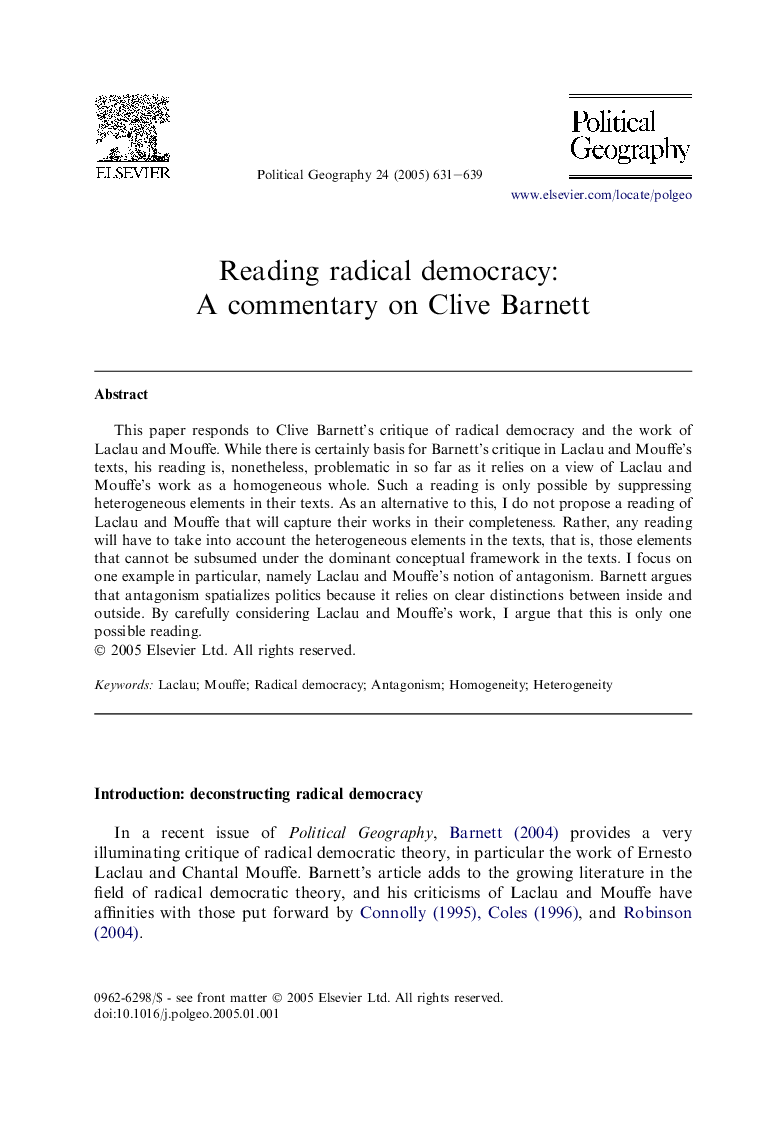| Article ID | Journal | Published Year | Pages | File Type |
|---|---|---|---|---|
| 10507859 | Political Geography | 2005 | 9 Pages |
Abstract
This paper responds to Clive Barnett's critique of radical democracy and the work of Laclau and Mouffe. While there is certainly basis for Barnett's critique in Laclau and Mouffe's texts, his reading is, nonetheless, problematic in so far as it relies on a view of Laclau and Mouffe's work as a homogeneous whole. Such a reading is only possible by suppressing heterogeneous elements in their texts. As an alternative to this, I do not propose a reading of Laclau and Mouffe that will capture their works in their completeness. Rather, any reading will have to take into account the heterogeneous elements in the texts, that is, those elements that cannot be subsumed under the dominant conceptual framework in the texts. I focus on one example in particular, namely Laclau and Mouffe's notion of antagonism. Barnett argues that antagonism spatializes politics because it relies on clear distinctions between inside and outside. By carefully considering Laclau and Mouffe's work, I argue that this is only one possible reading.
Related Topics
Social Sciences and Humanities
Arts and Humanities
History
Authors
L. Thomassen,
